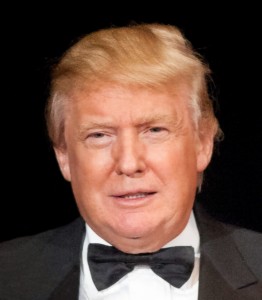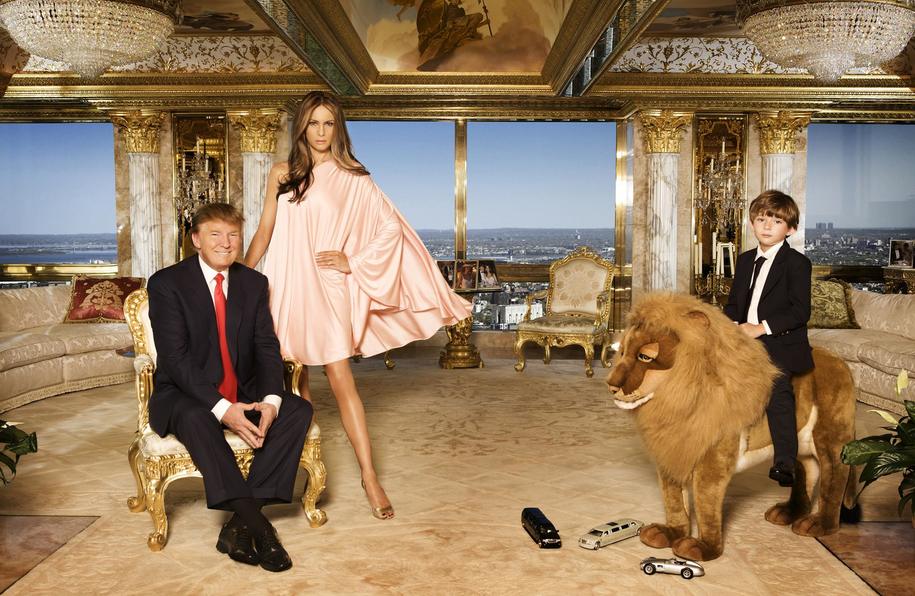The New Reality
 The election is over, and the new Trump Administration has a problem. In fact, it’s a major problem. To begin with, governing is a whole different thing than running for office. And “draining the swamp of Washington” while also governing the nation is more than doubly difficult.
The election is over, and the new Trump Administration has a problem. In fact, it’s a major problem. To begin with, governing is a whole different thing than running for office. And “draining the swamp of Washington” while also governing the nation is more than doubly difficult.
But the problem goes deeper. The very things that brought a Trump victory at the ballot boxes can be a serious liability in the White House.
Here’s why: Trump won in large part because he mastered the new media—something the Clinton team mocked and laughed at (until their shocked experience on election night).
In fairness, as Democratic strategist Van Jones pointed out, past media revolutions brought similar results. FDR used the radio to put together multiple winning elections, while opponents tried to stick with the old newspaper approach to media. Years later, Republicans were surprised by the rise of television media and how effectively JFK used it to create broad national popularity.
Another few decades, and the rise of Internet media changed the way presidential campaigns worked. While McCain and then Romney attempted to do things the old way, Obama and his team mastered social media and dominated two very effective campaigns.
Note that in all these cases, Democrats adapted to changing media realities while Republicans remained stuck in the old way. This changed in 2015-2016. As Jones put it, Trump tapped into a new media model—a nation of viewers steeped in Reality Television.
Neighbor or Villain
In this new medium, candidates win by emulating what winning participants do on reality TV. The quickest way to the stay on the show, week after week, is to jump in as the villain during week one. Say outrageous things, stir the pot, get a bunch of Americans hating you, boost the ratings, and do it every week. In fact, if you ever lose the focus of the camera, say more outrageous things. Survivor, The Bachelor, The Amazing Race, The Apprentice, even Duck Dynasty, Real Wives, Jersey Shore, etc.—this formula is effective.
The quickest way to lose in this format is simple: try to fit in, attempt to be popular, don’t make waves. Even worse: try to impress people. Today’s generation of Americans increasingly see this as acting like a politician. It feels slick and glib, a la Bill Clinton, Bush, Romney, Rubio, etc. Saying whatever you think the voters (or other contestants) will like is the sure road to losing. In contrast, in this new Reality Television media system, being the villain, saying outrageous things, and picking repeated fights, frequently brings victory.
This media shift shocked the Obama and Clinton machines in 2016, despite the fact that Bernie Sanders and Donald Trump had been proving the opposite for many months. But now the election is over, and a new reality is setting in.
It’s almost impossible to predict what this will mean in the years ahead. In the last three major media shifts, the new media worked both during the campaign and after. FDR used radio to his benefit during elections and even more while governing. Presidents did the same with television when it took over the media world. Online media kept Obama’s popularity high, and even helped boost his ratings on numerous occasions during the years between elections.
The question now is whether the newest media system, the Reality Television model of “Be the Outrageous Villain and Keep Doing It, Week after Week,” will work for the next four years. Think about it. This is a big deal.
Breaking or Building
Clearly the liberal mainstream media (led by NBC, The New York Times, The Huffington Post, ABC, CNN, etc.) are an unwitting asset; they have shown they are willing to keep supporting Trump in this approach. They want to tear him down in any way they can, and as long as so many Americans distrust the media, this turns to his advantage.
If Trump wants to maintain this strategy in the months and years ahead, he’ll routinely support major reforms that drastically change Washington, he’ll pick a continuous series of fights with special interests and federal bureaucracies, and he’ll vilify someone new every few weeks.
In all this, he’ll usually blame the media. In fact, he’ll look for as many ways as possible to fault the media. The more the better. He’ll tweet, call names, use bombast, and overstate things, all in the name of stirring the pot and keeping the media focus on him and his policies.
The media will think it’s tearing him down, but if this strategy works he’ll be more popular than ever when the next election comes. If you think the mainstream media was shocked in the 2016 election, imagine how they’ll feel after attacking Trump for four years and seeing his electoral numbers increase in 2020. They’ll be positively apoplectic.
But here’s the rub. What a lot of people don’t want to hear is that this kind of bombastic, extreme tone is a lot more likely to coincide with truly, actually, “draining the swamp in Washington.” If the Trump Administration decides to try to play the mainstream media game and attempt to look like a Bush, Clinton, Bush II or Obama style system, we likely won’t see much real change in Washington.
Not So Revolutionary
Somehow the kind of professionalism and antidisestablishmentarianism [I can’t believe I actually just used one of the longest words in the English language is a serious sentence] exhibited by many presidential administrations create a tone of “Washington staying the same.” And that path guarantees bigger and bigger government. Not draining the swamp, but expanding it.
Consider the Reagan Revolution. It started out with what the establishment in both parties considered outrageous, extreme, and even irresponsible. But it also began by making some real changes. By Reagan’s second term, however, the administration wasn’t a revolution anymore. It started fitting in with the establishment, and by the time Bush was elected, the Reagan Administration was pretty much part of the establishment.
This led to the Gingrich revolution in 1992, which was considered extreme, irresponsible, and outrageous (sound familiar?), but by 1996 the Gingrich/Kasich Revolutionaries had become part of the establishment. The party of Reagan, Kemp, Gingrich and Limbaugh became the party of Dole, W, McCain, Romney, and Jeb. Not really a troop of boat-rockers.
It’s hard to tell where the Trump team is headed. Some of Trump’s White House and cabinet picks are from the revolutionary wing, while others are more establishmentarian. It’s a mix. Moreover, the tone out of Trump Tower and president-elect golf clubhouses is largely mild, professional–and leaning establishment.
The Real Challenge
This may be a smart chess move, keeping things hush-hush until after inauguration. Once the new president is in charge, his team will be a lot more effectively armed to take on the mainstream media.
But what if the Trump team takes the other approach? What if they decide they want to be popular? Or hope to get The NY Times, NBC, and CNN to like them? What if Trump hopes to be loved, or gets tired of being vilified, mocked, called a clown, a buffoon, and a devil? What if he wants popularity in New York and Washington? It might happen early, but even if it doesn’t happen for several years, the pressure will always be there.
The way the mainstream establishment fawned over Bill, Barack, Michelle, and Hillary—that’s a lot of incentive; and The Donald has, in the past, shown an affection for the spotlight and a particular aversion to being mocked or blamed.
And beyond his own instincts of self-preservation: Will his chivalry for his wife or his allegiance to his youngest son (who have both been in the cross-hairs of some harsh media treatments in recent months) begin to figure into the equation? All things considered, who wouldn’t want to be loved and popularly lauded when faced with such extremes? Will this opportunity for validation and praise prove too compelling a siren song?
The hard-working voters in the rust belt, Southwest, or rural America will never be able to provide such flattery or accolades, even if they were inclined to do so. But such fawning isn’t even part of their culture. If President Trump wants that kind of love and admiration, he’s going to have to look for it in the elite class. (They’ll never give it to him, of course. They couldn’t even be objective about Dole, Bush, or McCain–committed cronies of the establishment, all.)
Whatever you think of the new president, if he’s actually going to drain the swamp, as promised, he’s going to have to play the villain. Week after week. Month after month.
In short: Being outrageous won’t be his problem. The challenge will be vanity. And endurance. Will he embrace the role of villain and drain the swamp no matter how bad the media attacks become? Or will he follow the pattern of many presidents before him and go after popularity—by increasing the size and scope of government?
Ultimately, the new president will have to make this choice. The consequences will drastically impact America in the months and years just ahead.


























